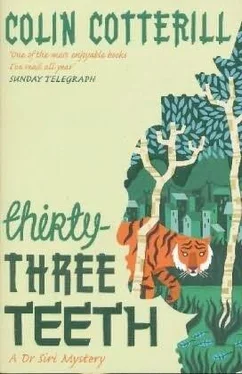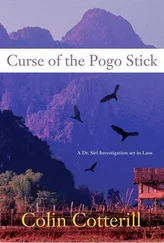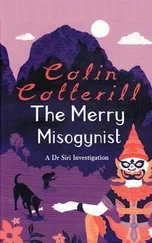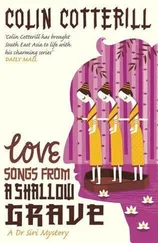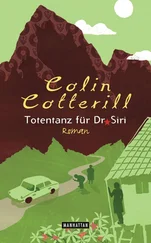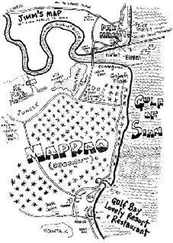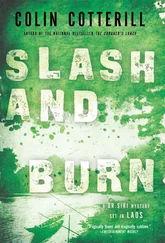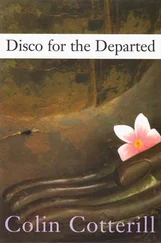Colin Cotterill - Thirty-Three Teeth
Здесь есть возможность читать онлайн «Colin Cotterill - Thirty-Three Teeth» весь текст электронной книги совершенно бесплатно (целиком полную версию без сокращений). В некоторых случаях можно слушать аудио, скачать через торрент в формате fb2 и присутствует краткое содержание. Жанр: Криминальный детектив, на английском языке. Описание произведения, (предисловие) а так же отзывы посетителей доступны на портале библиотеки ЛибКат.
- Название:Thirty-Three Teeth
- Автор:
- Жанр:
- Год:неизвестен
- ISBN:нет данных
- Рейтинг книги:5 / 5. Голосов: 1
-
Избранное:Добавить в избранное
- Отзывы:
-
Ваша оценка:
- 100
- 1
- 2
- 3
- 4
- 5
Thirty-Three Teeth: краткое содержание, описание и аннотация
Предлагаем к чтению аннотацию, описание, краткое содержание или предисловие (зависит от того, что написал сам автор книги «Thirty-Three Teeth»). Если вы не нашли необходимую информацию о книге — напишите в комментариях, мы постараемся отыскать её.
Thirty-Three Teeth — читать онлайн бесплатно полную книгу (весь текст) целиком
Ниже представлен текст книги, разбитый по страницам. Система сохранения места последней прочитанной страницы, позволяет с удобством читать онлайн бесплатно книгу «Thirty-Three Teeth», без необходимости каждый раз заново искать на чём Вы остановились. Поставьте закладку, и сможете в любой момент перейти на страницу, на которой закончили чтение.
Интервал:
Закладка:
Time passed quickly, and the two old men discussed Orwell and Voltaire, Engels and Guizot and Vailland, Cesaire, spiraling down to Simenon and Herge, wisely veering away from politics as the liquor slowly took hold.
In one of their last moments of sober clarity, Siri and the king had the brilliant idea of mixing Wilaiwan’s lethal brew with the juice of some succulent fruits from the orchard. The result was an ideal aperitif to accompany the fish and the rice, and the perfect antidote to depression.
When the whiskey bottles were empty, the two men lay side by side on a mat of lush grass, exhausted from a final bout of laughter, invigorated by talk of literature and music, at peace and at one with the aromatic fruit. There, Siri watched the cricket on the king’s shoulder, licking its fingernails, and he slowly joined the old regent in sleep.
As the spirits resided in the trees, and the fruit grew on those trees and that fruit was now inside Siri, it was no surprise that his sleep should be filled with the light and color of a spectacular dream.
It was day. He was in the orchard, but the orchard was enormous. The trees stretched far into the sky. The tree spirits were everywhere, dancing, singing, having a thoroughly good time. It was an animated Hieronymus Bosch scene similar to the one he’d seen in a visiting exhibition at the Louvre in Paris. In fact, it was exactly that scene, except all the participants were Lao and not quite as naked.
Male angels juggled ripe oranges that had once been the breasts of the nymphs who cheered them on. The grand old dowager, Lady Tani, strummed on her Lao harp beside her dazzling yellow banana tree. Gooseberry sprites performed aerobatics. The whispering ghosts moved from spirit to spirit, telling them their futures and collecting star fruits as payment.
Siri and the king sat cross-legged beneath a mulberry fig tree, watching the extravaganza around them. Banyan tree angels stood guard behind them. His Majesty was in full white ceremonial garb, and medals glittered like treasure on his chest. A footman with a straggly gray beard dangling from the point of his chin stood a pace back from him.
Cicadas sang in tune like a choir. Color-coordinated butterflies circled in swarms so dense, they changed the hue of the sky at will. The footman announced the arrival of guests, and the king looked to Siri to see if he approved. The doctor raised an eyebrow and waved his hand. It was a gesture he remembered from the bald king in the Hollywood film that had insulted Siam and thus delighted the Pathet Lao.
“Etcetera, etcetera, etcetera,” he said, for no other reason than it was the only line he remembered from that picture show.
The footman returned with two handsomely hobbling pilots who, due to the absence of feet, carried their expensive leather boots under their arms. They were Lao and they greeted their king in royal language.
“Sire, we shall try once more.”
“We were betrayed, Lord. They were expecting us. There is a traitor in your camp.”
With that, the footman exploded horribly, bits of him flying in all directions. Siri looked around to see whether there were accusing eyes pointed at him. But suddenly there were no eyes to point. When he looked back, the king was gone. All that remained was a plate of crispy fried crickets and a side dip.
The pilots were standing back to back as if primed for an attack. The cowardly spirits were retreating to their trees, blending into the bark, merging with the branches, sinking into the roots. A wind rose, rustling the leaves. It grew until it began to shake the succulent fruits from the trees.
Left were Siri and the two pilots in a storm-darkened vignette. One pilot turned to him and nodded. “We are grateful.”
And with that, the two men burst into flames, burned to ash, and were blown away by the frantic wind. The tree leaves all around flapped in panic, as if in the grip of a monsoon. Alone, Siri listened to a roar of distant thunder, a roar of a beast, the gnar of terror. Toward the south, the trees were bending as if to clear the path of the creature that owned the terrible roar. The sky was black now, and Siri tensed for the storm.
He was learning to be an observer in his own dreams. Years before, he had felt obliged to be a participant; he’d played the roles and assumed the appropriate emotions. But now he watched them like a man in the front row of an empty cinema. He convinced himself that he wouldn’t be killed by the villain or truly loved by the heroines.
But something about the sound of the creature there that crashed through the jungle was a warning to him. This was beyond a dream, too real. It was a sign that he should expect to hear this sound in his waking hours and that it would be a critical moment. He knew somehow that he had to be aware of this sound because it had connections to the killings in Vientiane and could signal the end of him.
And he awoke, or perhaps he didn’t, and he was in a box. It was black and musty and he could see nothing, but he knew he was in a box. Logically he assumed it was that final box, that he had succumbed to that incontrovertible last argument with nature. But no.
He smelled the smoke of a cheap cigarette. He felt the warm spray of something mildly caustic against his face. It smelled of liquor. There was a creak, and the lid of the box opened and light rushed in on him. Faces looked down at him: blanched, unemotional faces. Some had lips the color of a new wound; some wore jewels that neither glittered nor suggested wealth; all had empty black two-dimensional eyes that tapered to lizard tails.
Siri was small and shrunken, as if he were their toy. He looked up. They looked down. There were no sounds. For the longest time they stared up and down at each other, until the lid of the box slowly closed and Siri was back in the musty dark. But he had committed their faces to memory.
When the actual morning brought its actual awakening, Siri was disoriented and alone. The scents of the heavy fruits were still all around him, but they seemed overly sweet, offering a final advertisement of their ripeness before all was lost. The feeling of being protected was gone. He heard the scurrying of animals and saw briefly a marmot carrying off a ripe orange in its mouth. The branches buzzed with insects.
He turned to his side and saw the indentation of the king, like a cartoon accident in the thick grass. In the dip where the head had lain, the cricket from the king’s shoulder lay dry and lifeless. Lao tradition had it that the kwun materialized in the form of a cricket. If that was true, the king had been right: the kwun had left him.
999,999 Elephants
Siri went to bid goodbye to his sister-in-law and her husband, who were already toiling in the rice field. They were making their contribution to the cooperative, which allowed them to work one small corner of the land they had once owned. It was the land Wilaiwan had been awarded as a senior court dancer. The royal seal on her document meant no more now than her bourgeois skills.
“Thank you for loving my sister,” she said, pulling her saucer-shaped hat back from her eyes. She hadn’t asked where he’d spent the night. She’d learned not to ask too many questions, even of a relative. He’d already decided against telling her of his visit with the king. It would have been too distressing for a royalist to hear of the loss of the royal kwun.
“It was my pleasure, and that’s the truth of it.”
“I’m glad she had you.”
“Wan, I have a small mystery I’m trying to solve.”
“I doubt I could help with the type of mystery you’re engaged in.”
“I’m not so sure. In Vientiane, there’s a teak chest with a royal seal. It’s about the size of a child’s coffin. It doesn’t have any keyhole or handle, and it seems impossible to open. I believe there’s some great force inside.”
Читать дальшеИнтервал:
Закладка:
Похожие книги на «Thirty-Three Teeth»
Представляем Вашему вниманию похожие книги на «Thirty-Three Teeth» списком для выбора. Мы отобрали схожую по названию и смыслу литературу в надежде предоставить читателям больше вариантов отыскать новые, интересные, ещё непрочитанные произведения.
Обсуждение, отзывы о книге «Thirty-Three Teeth» и просто собственные мнения читателей. Оставьте ваши комментарии, напишите, что Вы думаете о произведении, его смысле или главных героях. Укажите что конкретно понравилось, а что нет, и почему Вы так считаете.
